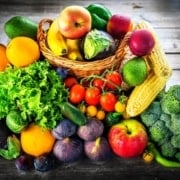Premium Juice Brands Working on Lowering Sugar in Their Drinks
Reading Time: 3 minutes
Sugar has long been a battle for soda companies and shelf-stable juices, but premium juice brands are now facing the challenge of reducing sugar in their healthy drinks. Premium juice brands typically use fresher ingredients without any added sugars. However, adding some fruit juices and flavors can quickly increase the sugar content in their drinks. In response to the growing fight against sugar, juice brands are innovating the formulations, processing methods, and marketing to take sugar head on.
Not All Sugars Are Created Equal
It is no easy task to eliminate the sugar in these juice brands. CEO of Suja Juice, Jeff Church, says he has watched the market evolve in just the past five years. When Suja Juice started, it had roughly 25g of sugar per bottle, but after listening to consumers, they have decreased the sugar to 10 grams or less per bottle. Church believes that consumer demographics have played a considerable role in the lower sugar options in the market. Baby boomers are more tolerant of higher sugar content than millennials. However, both carry significant weight in sales. Church believes this has forced brands to take a broad focus on reducing sugar.
On the other hand, Ryne O’Donnell, CEO of Sol-ti, is taking a different approach. He believes consumers need to understand that not all sugars are created equal. He believes that adding beneficial fruits and vegetables that may be high in natural sugars outweighs the potential negatives.
Courtroom Controversy for Juice Brands
Some of the first juice brands have faced courtroom controversy from anti-sugar crusaders. Odwalla, a subsidiary of Coca-Cola, faced backlash and a class action lawsuit for the phrase “evaporated cane juice” on its ingredient label. The lawsuit was ultimately withdrawn, but the Odwalla was hit with another suit based on their “No Sugar Added” phrase on their packaging. They are currently in private mediation with no expected ruling or settlement until the middle of 2018.
Center for Science in the Public Trust also filed a lawsuit against Pepsi’s Naked Juice brand in 2017. CSI believed naked was mislead consumers through marketing products with the wrong fruits and vegetables on the packaging and use of phrases like “No Sugar Added.” Pepsi settled and agreed to update its packaging with more accurate ingredients and decrease the font size of “No Sugar Added.”
New Brands on the Block Looking to Capitalize
Edit Fruit Juice was founded in 2013 with the idea to solve the technical issue of eliminating natural sugars from fruit. The company’s patented process enables them to extract 90% of all natural sugars from the fruit so that their 100% fruit juice contains less than 1g of sugar per serving.
Other brands are adapting by adding natural sweeteners like stevia and monk fruit. However, some premium juice brands don’t like the idea of adulterating pure juice. It will be a battle of brands trying to create the most premium juices while decreasing sugar at the same time. They still have to taste delicious and make consumers feel like they are making a healthy choice.
Inspired by bevnet.com




